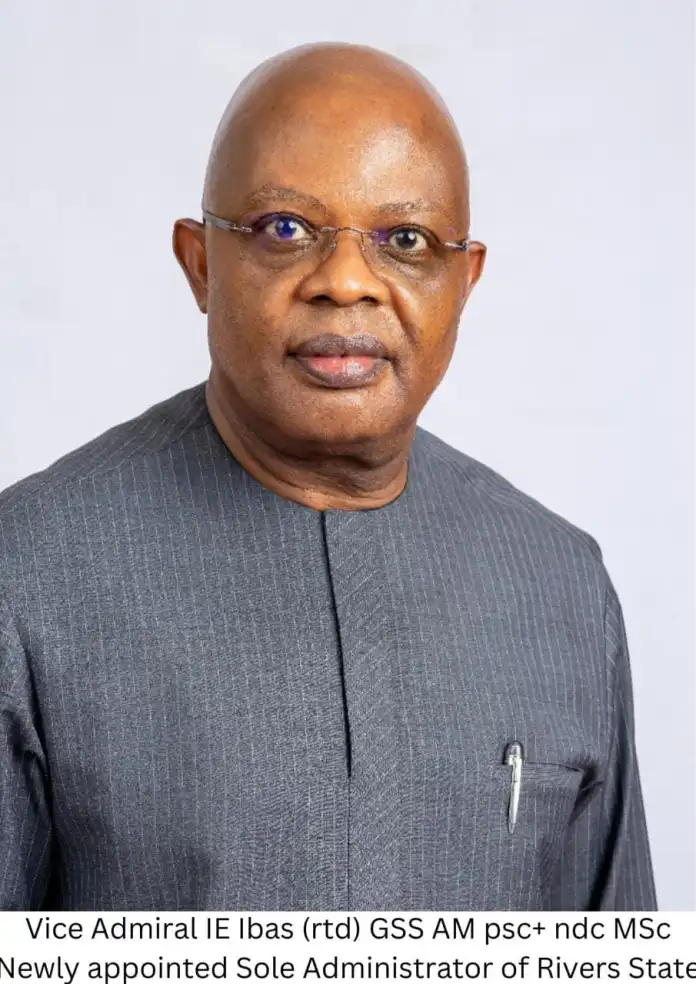Chief Magistrate Ejike King George has voluntarily retired from the Judiciary of Rivers State, citing deep concerns over the state’s recent political developments. The decision was publicly announced in a formal statement that clearly expresses his discomfort with what he described as the imposition of a “quasi-military administration” to govern the state.
George, who has served as a Magistrate for 16 of his 22 years of legal practice, stated that his retirement was prompted by his dissatisfaction with the current governance system, which he believes undermines the democratic values and legal principles that are vital to the functioning of the judiciary. He described the quasi-military administration in Rivers State as “alien” and in direct conflict with the values upheld by legal professionals.
In his resignation letter, George explained that his decision to retire was not made lightly. He acknowledged the challenging nature of the decision but emphasized that continuing in his role under the current administration would be a form of silent approval of what he believes is an undemocratic governance system.
“I find it difficult to work with the current setting, as doing so would amount to a tacit and naive acquiescence,” George wrote in his statement, referring to the recent political changes in Rivers State. His message was directed not only at his colleagues within the judiciary but also at the broader public, warning against the dangers of accepting an authoritarian-style government that, in his view, undermines the values of democracy and justice.
The Chief Magistrate also expressed his concern that the introduction of a quasi-military rule in the state is fundamentally at odds with the responsibilities of legal practitioners and judges, who are expected to uphold the rule of law and serve the interests of justice. By voluntarily stepping down, George has made a powerful statement about his unwillingness to compromise on these principles.
The political climate in Rivers State has been a point of controversy in recent times, especially with the establishment of a quasi-military administration that is believed to have taken over the day-to-day governance of the state. This change has drawn mixed reactions from both political figures and the general public, with some questioning the legitimacy of this form of governance in a democratic society.
A quasi-military administration typically combines elements of both civilian and military leadership, and its implementation in Rivers State has raised concerns about the potential erosion of democratic processes. Critics argue that such a system could lead to the suppression of individual rights and freedoms, as well as undermine the independence of key institutions, including the judiciary.
For Chief Magistrate George, this development seemed to mark a turning point, one that he could not reconcile with his role as a legal practitioner and judge. His resignation reflects the broader discontent within certain segments of the Nigerian legal and political community, who are worried that the rule of law and the principles of democracy are being compromised by the current administration.
George’s decision to retire is particularly notable given his long and dedicated career in the judiciary. Having served for 16 years as a Magistrate in Rivers State, George was well-respected among his peers for his commitment to justice and his legal expertise. He had spent much of his career serving under various democratic administrations, and his sudden resignation signals a deep disillusionment with the direction in which the state is heading.
In his letter, George expressed gratitude for the opportunity to serve in the judiciary, recognizing the valuable experiences he gained over his years of practice. However, he also made it clear that his commitment to justice and the law outweighed any sense of duty to continue serving under a system he viewed as incompatible with democratic governance.
“I have put in a whooping 16 out of my 22 years of legal practice into this judiciary under successive democratic administrations,” George wrote, underscoring the contrast between his previous experiences and the current situation in Rivers State. His statement highlights the challenges faced by legal professionals who are forced to navigate political environments that may compromise their ability to perform their duties impartially.
George’s voluntary retirement has sparked conversations among legal professionals in Rivers State and beyond. Many within the legal community have expressed support for his decision, applauding his courage in taking a stand against what he sees as a threat to the independence of the judiciary and the rule of law.
Some legal experts have voiced concerns about the implications of a quasi-military administration on the judiciary and other democratic institutions. They argue that such a system could erode public trust in the justice system and hinder the ability of judges and magistrates to make impartial decisions. These concerns are especially relevant in a country like Nigeria, where the judiciary plays a crucial role in upholding democratic values and protecting the rights of citizens.
In addition to the support from legal professionals, George’s resignation has also resonated with members of the public who are concerned about the state of democracy in Rivers State. His decision to retire reflects broader anxieties about the future of governance in Nigeria, where the balance between democratic institutions and executive power is often in flux.
George’s retirement raises important questions about the future of Rivers State’s political landscape, particularly with regard to the relationship between the government and the judiciary. The move also highlights the challenges faced by legal practitioners who may feel compelled to choose between their professional duties and their personal values in an increasingly complex political environment.
As Rivers State grapples with the implications of quasi-military rule, it remains to be seen how other members of the judiciary and legal community will respond. Will more judges and magistrates follow George’s lead, or will they remain in their positions, even if doing so means compromising their professional integrity?

